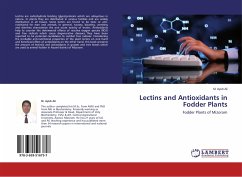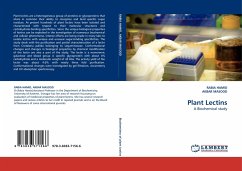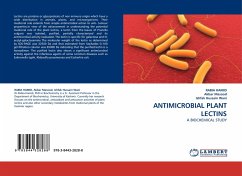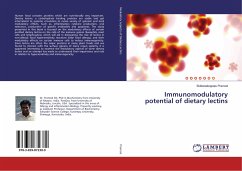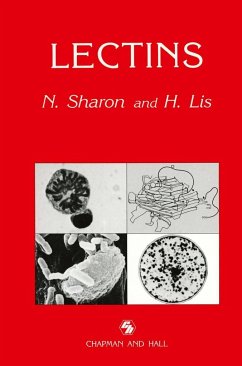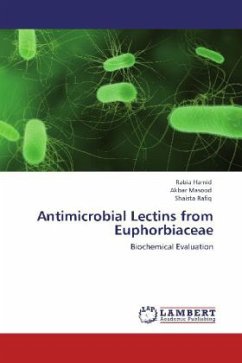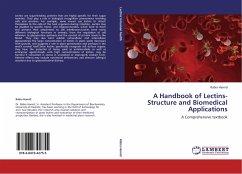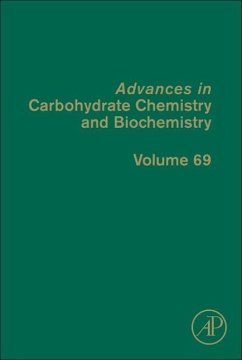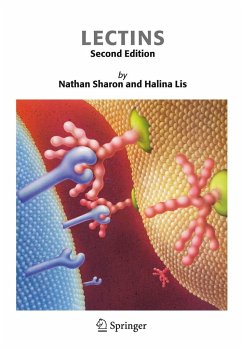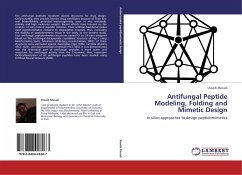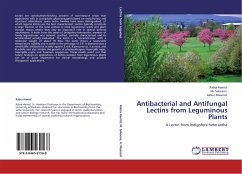
Antibacterial and Antifungal Lectins from Leguminous Plants
A Lectin from Indigofera heterantha
Versandkostenfrei!
Versandfertig in 6-10 Tagen
39,99 €
inkl. MwSt.

PAYBACK Punkte
20 °P sammeln!
Lectins are carbohydrate-binding proteins of non-immune origin that agglutinate cells or precipitate glycoconjugates.Based on evolutionary and structural relatedness, seven lectin families have been distinguished, of which legume lectins are the best characterized. Lectins typically constitute a large fraction of the total protein in most leguminous seeds and plant storage tissues where they play an important role in several defense mechanisms. A lectin from the seeds of Indigofera heterantha, member of family leguminosae was isolated, purified, partially characterized and its antimicrobial ac...
Lectins are carbohydrate-binding proteins of non-immune origin that agglutinate cells or precipitate glycoconjugates.Based on evolutionary and structural relatedness, seven lectin families have been distinguished, of which legume lectins are the best characterized. Lectins typically constitute a large fraction of the total protein in most leguminous seeds and plant storage tissues where they play an important role in several defense mechanisms. A lectin from the seeds of Indigofera heterantha, member of family leguminosae was isolated, purified, partially characterized and its antimicrobial activity evaluated. The lectin is a homotetramer with a molecular weight of about 70 KDa. The lectin shows a reasonable temperature stability and is stable in the pH range of 2-9. It demonstrates a remarkable antibacterial activity against E.coli, K.pneumonia, S.aureus, and B.subtilis and also inhibits the growth of phytopathogens Aspergillis niger, Aspergillis oryzie and Fusarium oxysporum. These results point out that future findings on applications of lectins isolated from leguminous plants can be of great importance for clinical microbiology and possible therapeutic applications.



